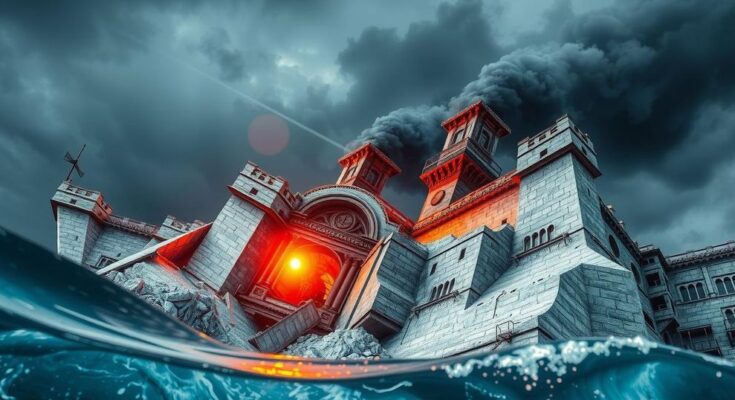The article reviews significant historical earthquakes and tsunamis, notably the 1908 Messina earthquake, the 2004 Indian Ocean tsunami, and Japan’s 2011 disaster. Each event caused immense loss of life and prompted global awareness, highlighting the ongoing challenges coastal communities face during such calamities. Deseret News archives reflect on individual stories and community efforts following these tragedies.
On December 28, 1908, the disaster struck the Italian cities of Messina and Reggio Calabria when a significant earthquake, measuring 7.1 on the Richter scale, generated devastating consequences, resulting in the loss of at least 70,000 lives. This calamity is recorded as the deadliest earthquake in European history and marked a pivotal moment, as global media, including Deseret News, disseminated news of the tragedy widely. Natural disasters of this nature present grave challenges for coastal communities, particularly when they coincide with festive periods.
Decades later, another catastrophic event unfolded on December 26, 2004, when a 9.1-magnitude earthquake beneath the Indian Ocean unleashed a tsunami with waves reaching heights of up to 100 feet, leading to approximately 230,000 casualties across multiple nations. Following this, on March 11, 2011, Japan faced its own tragedy with a tsunami triggered by an earthquake that traveled nearly 500 miles per hour, resulting in over 18,000 deaths. Deseret News has chronicled these disasters and the resilience exhibited by affected communities.
Highlighted articles in the Deseret News archives document the international response to such disasters, emphasizing human solidarity in the face of tragedy. Stories such as the miraculous survival of a newborn captured in an iconic tsunami photo and reflections on the historical wisdom often overlooked by tsunami-impacted towns shine a light on the human experience amid overwhelming sorrow. Other articles showcase community initiatives, including efforts to uplift the spirits of tsunami victims in Japan and discussions surrounding the historical potential for tsunamis in local lake areas.
The topic of earthquakes followed by tsunamis encompasses serious geological phenomena that can dramatically affect coastal regions, often resulting in significant loss of life and infrastructure damage. Historical events, such as the earthquakes in Italy and the subsequent tsunamis in Indonesia and Japan, illustrate the recurring nature of these disasters and highlight the inadequacies of existing warning systems. Moreover, they spark discussions on how communities remember and respond to such tragedies, revealing the interplay between nature, culture, and human resilience.
In conclusion, the historical overview of the 1908 earthquake in Italy, followed by the tsunamis in 2004 and 2011, underscores the persistent threat posed by such natural disasters, illustrating the tragic consequences and vulnerabilities faced by coastal regions. The Deseret News archives not only preserve the memory of these events but also explore the profound human responses that emerge in the wake of catastrophe. Commitment to research and preparedness continues to be crucial in mitigating the impacts of future seismic events.
Original Source: www.deseret.com




